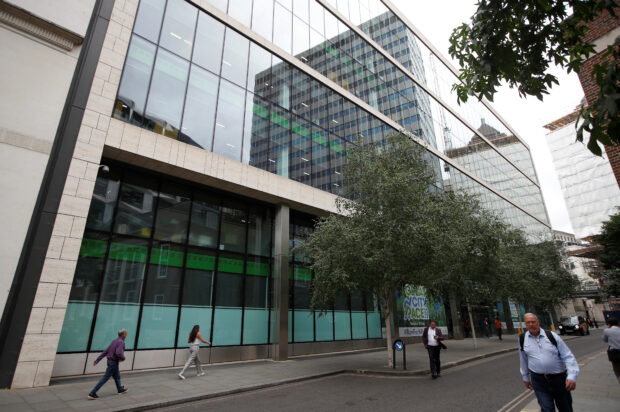Stress test shows top 8 UK banks have enough capital, says Bank of England

The headquarters of Standard Chartered bank is seen in London, Britain, July 26, 2022. REUTERS/Peter Nicholls/File phto
LONDON -Britain’s eight largest lenders have enough capital to ride out economic stress deeper than the 2008 financial crisis, the Bank of England (BoE) said on Wednesday, as the sector faces sharply rising interest rates pummeling consumers and businesses.
The test checked if banks were holding enough capital to cope with theoretical shocks under a scenario which the BoE said was more severe than the global financial turmoil of 2008 when British taxpayers had to bail out several lenders.
The test also measured how well the lenders would cope with a global rise in interest rates.
The eight banks account for 75 percent of lending in Britain.
“The results of the 2022/23 annual cyclical scenario (ACS) stress test show that the major UK banks are resilient to a severe stress scenario that incorporates persistently higher advanced economy inflation, increasing global interest rates, deep simultaneous recessions with materially higher unemployment in the UK and global economies, and sharp falls in asset prices,” the BoE said in a statement.
“Major UK banks’ capital and liquidity positions remain robust and profitability has increased, which enables them both to improve their capital positions and to support their customers.”
There was no common pass mark but each bank had to scale a bespoke hurdle, with Barclays, Lloyds, HSBC, NatWest, Santander UK, Standard Chartered, Nationwide Building Society and Virgin Money all showing no capital inadequacies, the BoE said.
The Bank said it had decided to maintain its counter-cyclical capital buffer (CCyB) for banks unchanged.
“This will help to ensure that banks have sufficient capacity to absorb future shocks without unduly restricting lending,” the BoE said.
The economy is so far proving resilient to the jump in interest rates, the Bank said.
Given its successful completion of the stress test, Virgin Money said it anticipated resuming its share buyback program during this year, sending its shares 3 percent higher in early trading.
Barclays and Lloyds shares were up around 1.5 percent at 0708 GMT, while NatWest, HSBC and Standard Chartered made smaller gains.
NatWest, Britain’s biggest lender to small businesses, said the test highlighted the group’s “all weather” balance sheet.
Lloyds, Nationwide, HSBC and Standard Chartered also noted their successful performance in the test.
The Bank is also looking jointly with the finance ministry at potential options for winding down small banks after recent events in the United States where Silicon Valley Bank collapsed and Britain had to engineer a takeover of its UK subsidiary.
“Deposit outflows at some regional U.S. banks were large and rapid, with digital banking technology and social media playing a role in increasing the speed at which information was shared and deposits withdrawn,” the BoE said.